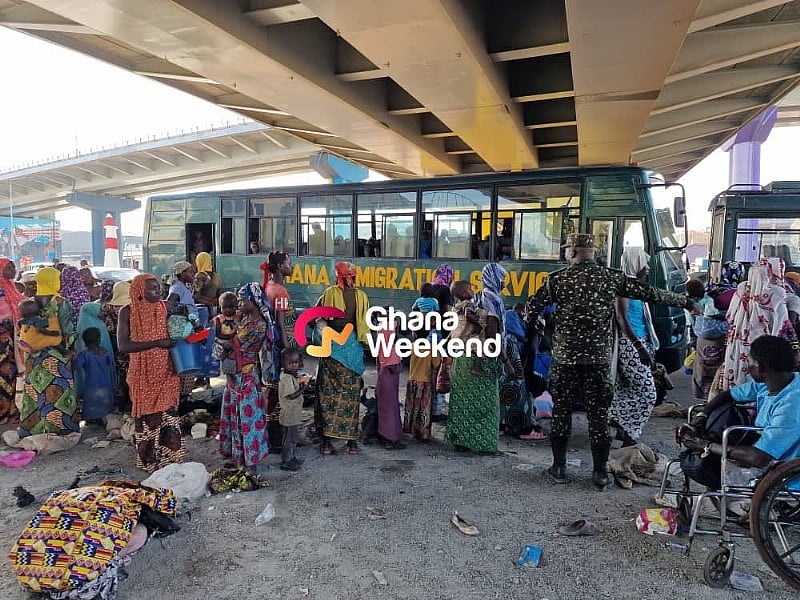The Ghana Immigration Service (GIS) launched an operation on May 16, 2025, targeting undocumented foreign nationals residing on the streets of Accra and other major cities. These individuals, often accompanied by children, have become a prevalent sight on pavements and under bridges, resorting to begging for survival. The operation, which commenced in the early hours of Friday, focused on areas like Kaneshie and Abossey Okai, known for higher concentrations of street dwellers. The GIS’s primary objective is to address the growing public concern surrounding the increasing number of foreign nationals living on the streets and the potential risks of exploitation they face. The service is currently evaluating the results of this initial operation and has promised to release a comprehensive report to the public in the near future.
The operation underscores the complex challenges Ghana faces regarding undocumented migration and its social ramifications. The presence of foreign nationals, particularly those with children, living on the streets raises humanitarian concerns, including access to basic necessities like food, shelter, and healthcare. Furthermore, it exposes vulnerable individuals, especially children, to potential risks of abuse, exploitation, and human trafficking. The GIS intervention seeks to address these multifaceted issues by removing these individuals from the streets and initiating processes to determine their legal status and potential repatriation. This approach reflects the government’s efforts to manage migration while safeguarding the well-being of vulnerable populations.
The GIS statement, issued by Assistant Commissioner of Immigration and Head of Public Affairs, M. Amoako-Atta, confirms the operation’s focus on undocumented migrants. This emphasis suggests a broader strategy to enforce immigration laws and regulate the presence of foreign nationals within the country. The operation’s scope, extending beyond Accra to other urban centers, indicates a nationwide effort to address street dwelling by non-Ghanaians. While the immediate focus is on removing these individuals from public spaces, the long-term objective likely involves a more comprehensive approach that includes identifying and repatriating those without legal residency, potentially offering support to those eligible for asylum or other forms of legal protection.
The operation’s timing and execution raise several critical considerations. Removing individuals from the streets, while seemingly addressing an immediate concern, requires careful planning and execution to minimize potential harm and ensure respect for human rights. The situation of children accompanying these individuals demands particular attention, including ensuring their safety and well-being throughout the process. The GIS will likely need to collaborate with other government agencies and non-governmental organizations to provide appropriate care and support, especially for children separated from their guardians. The post-operation assessment will likely address these critical aspects, providing insights into the challenges encountered and the measures taken to mitigate them.
The public’s reaction to the operation and the subsequent release of further details by the GIS will be crucial in shaping future strategies for managing undocumented migration and addressing the root causes of street dwelling. Open communication and transparency will build public trust and facilitate a more informed national dialogue on these complex issues. Furthermore, collaboration with international organizations and neighboring countries can strengthen regional efforts to manage migration flows and prevent cross-border human trafficking and exploitation. Sharing best practices and coordinating policies can contribute to a more effective and humane approach to managing migration throughout the region.
The GIS operation to remove undocumented foreign nationals from the streets of Accra and other cities marks a significant step in addressing the complex challenges of migration in Ghana. While the immediate focus is on enforcing immigration laws and removing individuals from public spaces, the long-term success of this intervention will depend on a comprehensive approach that includes addressing the root causes of street dwelling, protecting vulnerable populations, and fostering regional cooperation. The GIS’s commitment to providing further details about the operation and its outcomes will be essential in facilitating informed public discourse and shaping future policies that prioritize human rights and sustainable solutions to the challenges posed by undocumented migration. A balanced approach that combines enforcement with humanitarian considerations is crucial for achieving a positive and lasting impact.














